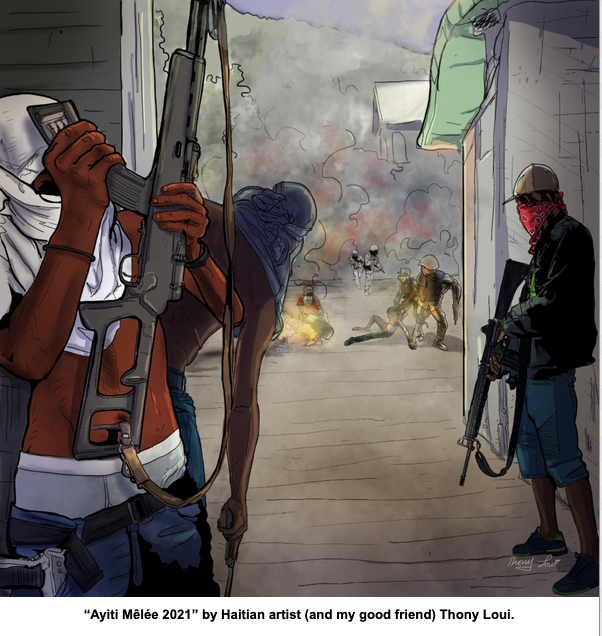With gangs in near total control of Port-au-Prince and the country in a state of emergency, I am reminded of my first encounter with a previous gang leader there in 2005. This was long before my current work with theSmallholder Farmers Alliance, and the Yéle Haiti organization referred to closed its doors more than a decade ago, but the experience has stayed with me and is recounted in the following preface to my 2012 book The Haiti Experiment.
|
|
|


